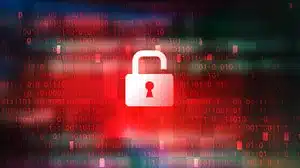
It was great to see everyone at the AAC Annual Meeting last week! We hope you had a chance to swing by the Mainstream Saloon for a root beer and to get your wanted poster photo in our photo booth.
Being the leading cybersecurity services provider in the state, we sat in on the cybersecurity session featuring Gary Vance, Chief Information Security Officer for the State of Arkansas, David Coles with Arkansas Legislative Audit, and Jonathan Askins, Executive Director of DIS. It was good to see a standing-room-only crowd interested to hear about this important subject.
During the session, Gary Vance recommended five steps that each county can take to improve its cybersecurity. Additionally, James Turner, IT director from Benton County referenced the positive results they are seeing from Workforce Awareness Training. We concur that these five (+1) tactics are essential parts of an effective cybersecurity program and wanted to share how Mainstream can help you implement Gary’s five (+1) recommendations:
- Implement Strong Passwords:
Passwords serve as the first line of defense against unauthorized access to your accounts and systems. A strong password is one that combines a mix of upper- and lower-case letters, numbers, and special characters. Passwords should be a minimum of 8-12 characters in length. Avoid using easily guessable information like birthdays, names, or common phrases. Instead, create unique and complex passwords (or passphrases) for each account and change them periodically; at least annually and preferably every 90 days. Consider using a reputable password manager to securely store and generate strong passwords. Mainstream can monitor your devices and report on systems that aren’t enforcing password requirements, helping you make sure that you don’t have any weak spots. - Multi-Factor Authentication (MFA):
Multi-factor authentication is an additional layer of security that requires users to provide multiple forms of verification before gaining access to an account or system. Typically, MFA combines something you know (password), something you have (a physical device like a smartphone), and sometimes something you are (biometric data like fingerprints or facial recognition). Even if a hacker manages to obtain your password, MFA greatly reduces the risk of unauthorized access, as they would also need access to your secondary authentication method. Mainstream can provide MFA solutions and help you implement and manage them to add this essential protection tool to your cybersecurity program. - Air-Gapped Backups:
Backing up your data is crucial to recover your systems; either from a system crash or disaster, but also in case of a cybersecurity incident like a ransomware attack. As Gary mentioned, not all backups are created equal, as backups which are accessible from your network are susceptible to encryption by an attacker during a ransomware attack. Air-gapped backups take this a step further by physically isolating your backups from your network; meaning that even if your main systems are compromised, the backups remain untouched and can be used to restore your data and systems. Mainstream offers a full suite of managed backup solutions that protect your systems from hardware failures, fires, floods, AND ransomware attacks. - Patch Management:
Vulnerabilities in off-the-shelf software are a common entry point for cyberattacks and many cyberattacks exploit known vulnerabilities for which patches are available, but which have not been applied. Software providers regularly release updates and patches to fix identified vulnerabilities, but these patches may not be automatically applied to your systems. Patch management is the process of scanning your systems to identify known vulnerabilities, applying available patches to remove the vulnerability, and re-scanning the system to make sure the vulnerability has been resolved. Mainstream can provide the tools and services to scan your systems and apply needed patches to make sure your systems are as current and protected as possible. - Endpoint Detection and Response (EDR):
Endpoint Detection and Response (EDR) solutions provide real-time monitoring and threat detection on individual devices, such as computers and smartphones. EDR tools monitor for suspicious activities, unauthorized access attempts, and malware on these devices. In case of an incident, they can respond by isolating the compromised device, blocking malicious activities, and collecting forensics data for analysis. EDR enhances your ability to detect attackers and stop them in their tracks before they can spread through your environment. Mainstream offers industry-leading EDR solutions to watch out for attacks 24x7x365, even during nights and weekends when bad actors are most active.
Workforce awareness training is the + 1 to this list. Workforce awareness training programs educate employees, who are the first line of defense in your cybersecurity program, on how to recognize malicious emails, texts, and phone calls and how to safely handle suspicious communications. Best-in-class training programs also test users through simulated phishing emails, provide remedial training for users who struggle with phishing tests, and provide reporting for management on user behavior. Mainstream can implement and manage a comprehensive workforce cybersecurity training program for you.
By implementing these five + 1 steps – using strong passwords, embracing multi-factor authentication, setting up air-gapped backups, keeping software updated through patch management, incorporating endpoint detection and response solutions, and training your workforce to recognize cyberattacks, the security of your systems will be significantly improved; creating multiple defense layers that deter potential attackers and minimizing the impact of successful breaches.
Remember, cybersecurity is an ongoing process. Regularly reviewing and updating your security measures and policies based on the evolving threat landscape is essential. By taking these steps today, you’re not only protecting your information but also contributing to a safer online environment for everyone.
If you would like more information on how your county can improve its cybersecurity, please feel free to contact Sara Christie @ 501.801.6750 or visit us at www.mainstream-tech.com/solutions/cybersecurity-services/





